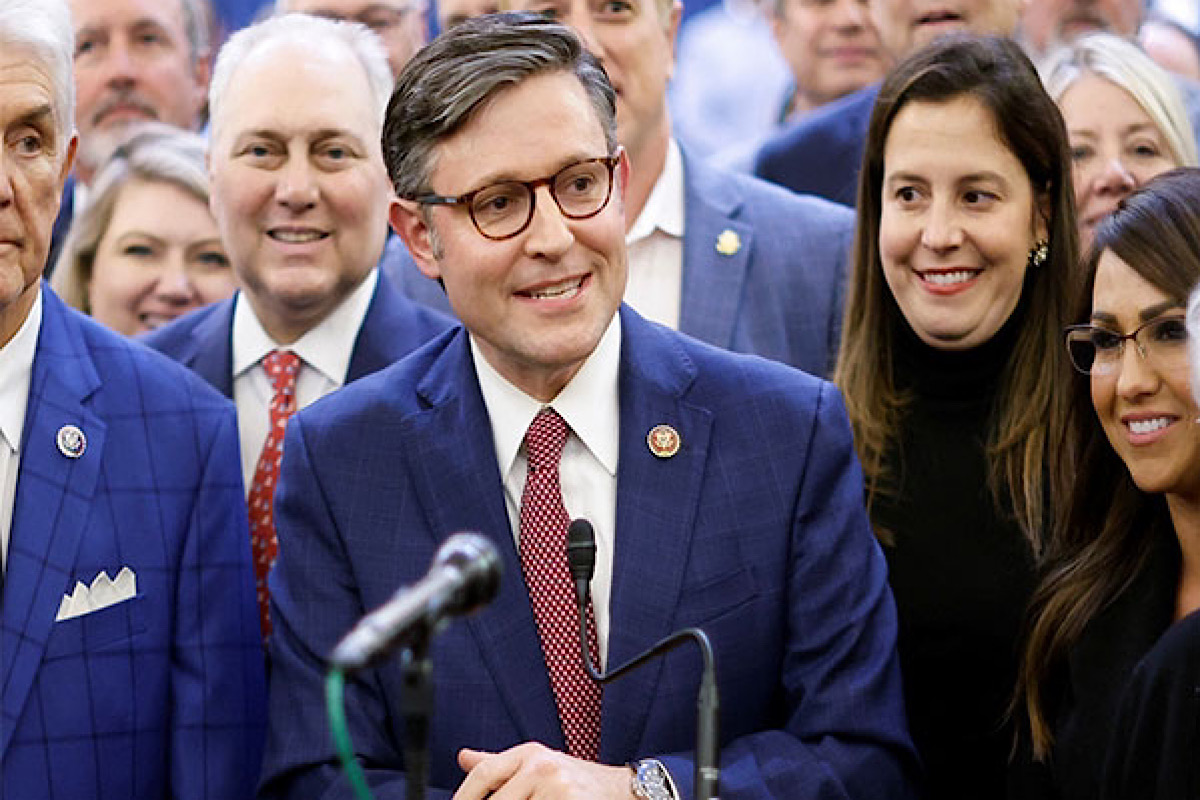In the turbulent seas of American politics, new US House speaker Mike Johnson finds himself at the helm of a ship caught in a tempest of internal dissent. The recent rebellion by hard line Republicans signals an early end to Mr Johnson’s legislative ‘honeymoon.’ This clash of ideologies, as the House grapples with funding bills and conservative policies, paints a vivid picture of a party wrestling with its own identity. At the heart of the discord is a group of 19 House Republicans, 15 of whom identify as hardliners.
Their defiance, manifested in a vote to block debate on a Bill earmarked for funding federal programmes on commerce, justice, and science for fiscal 2024 is a stark reminder to speaker Johnson that the delicate dance of party unity may be more challenging than anticipated. The statement by representative Scott Perry, chairman of the House Freedom Caucus, that “we’re not going to pass Bills that don’t address the problems America faces,” is a sentiment that echoes a broader frustration within the Republican party, with some in the caucus opposing Bills due to concerns over spending cuts on funding for US-Mexico border restrictions, abortion restrictions, and law enforcement spending cuts.
Advertisement
The drama reached its zenith when hardliners, including those from the Freedom Caucus, voiced their discontent over Mr Johnson’s decision not to include their desired agenda in a stopgap measure to avert a partial government shutdown. The ‘honeymoon’ for Mr Johnson, once viewed as a stalwart Christian conservative respected within far-right circles, now appears to be waning. The latest flashpoint emerged with Mr Johnson’s short-term spending Bill, designed to maintain existing government funding levels and programmes into early 2024. While the Bill managed to pass the House, its support from only 127 Republicans (compared to 209 Democrats) suggests a growing divide within GOP ranks.
Furthermore, Mr Johnson’s decision to suspend House rules to sidestep attempts to block debate added fuel to the fire. Amid this internal strife, it is worth noting that the House’s Bill to avert a government shutdown was later passed by the Senate and signed into law by President Joe Biden. This development adds an intriguing layer to the narrative, highlighting the necessity for cooperation in the broader legislative landscape. As hardliners rally for Mr Johnson to unite the Republican majority and advocate for spending cuts and policy changes in negotiations with the Democratic-led Senate, the speaker faces a delicate balancing act. The challenge is not merely passing Bills but presenting a united front against an opposing force. In this evolving saga, Mr Johnson’s leadership will be put to the test.
Can he navigate the treacherous waters of party dissent and steer towards legislative victories that resonate with both hardliners and moderates alike? The answer to this question holds profound implications not just for Speaker Johnson but for the future trajectory of the Republican Party as it grapples with its identity in an ever-changing political landscape.











